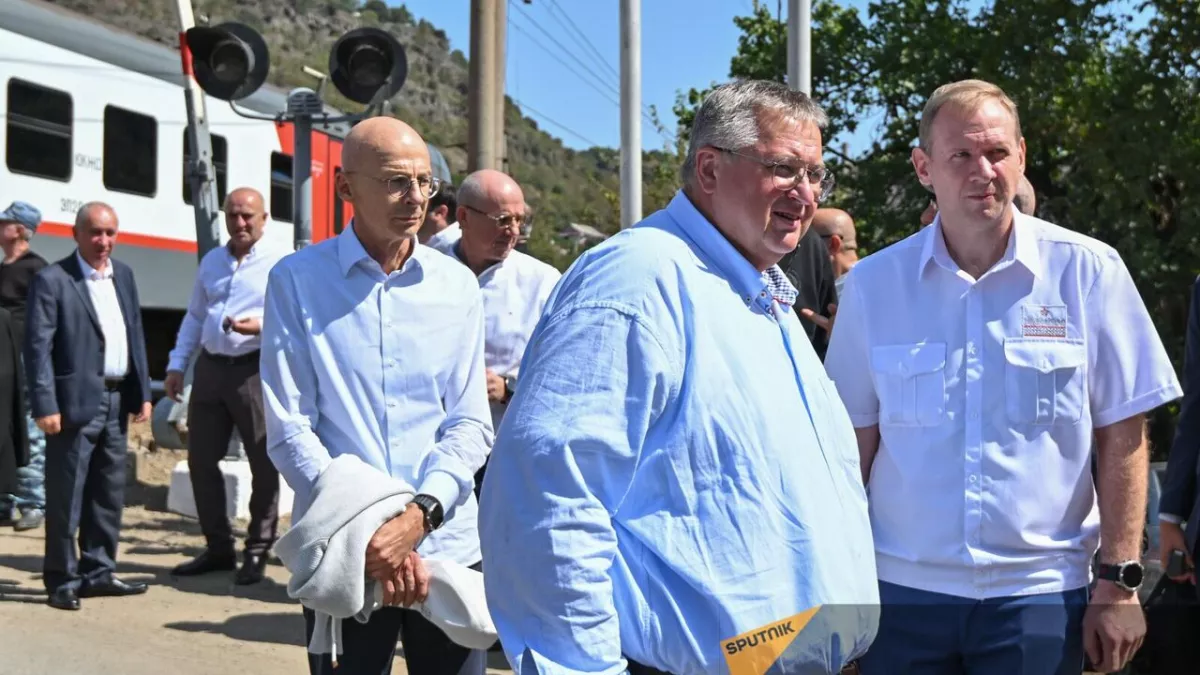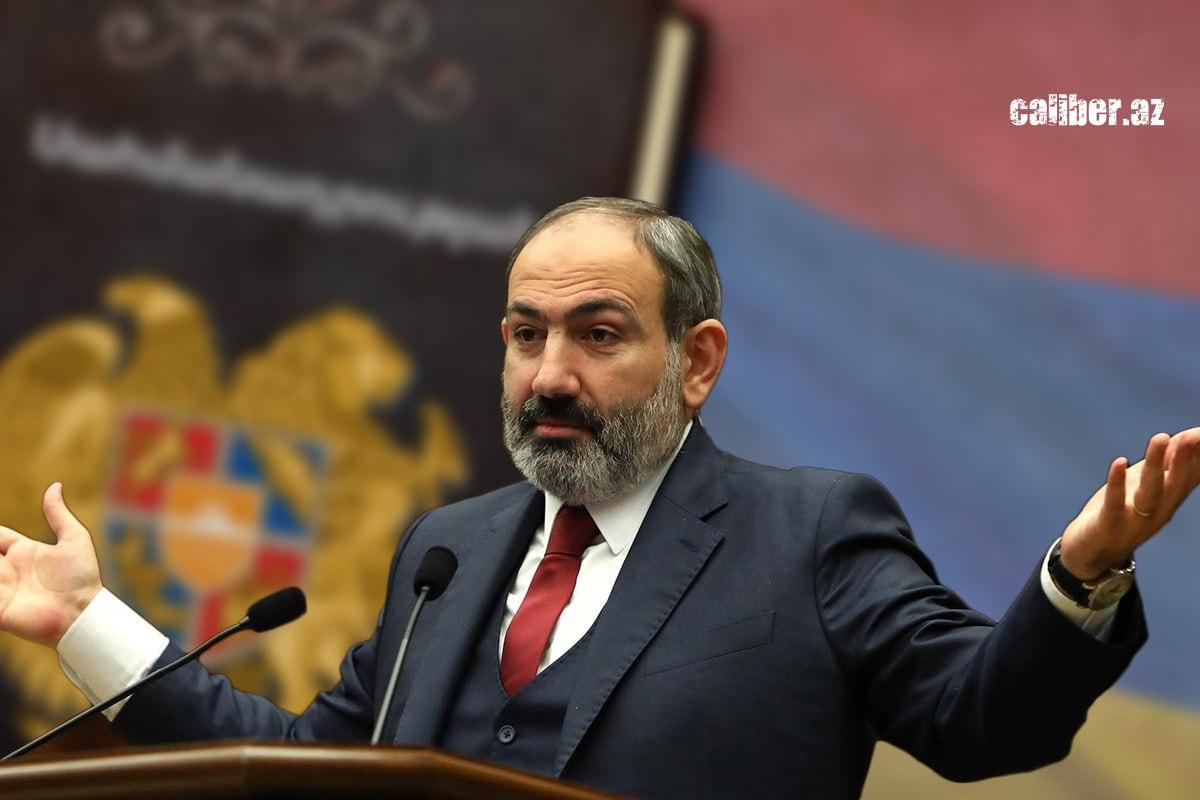Armenia profits from Russian gems yet opposes Zangezur Corridor Economic gains vs political stalemate
On September 13 and 14, a Russian delegation led by Deputy Prime Minister Alexey Overchuk visited Armenia for a working visit. During his visit to Yerevan, Alexey Overchuk reminded the Armenian leadership that Armenia owes much of its economic prosperity to its cooperation with Russia and the EAEU. According to Alexey Overchuk, the trade turnover between Armenia and Russia in 2024 could reach between $14 billion and $16 billion, which is six times higher than the figure for 2020 ($2.3 billion).
"Figures and facts speak louder than words. In 2023, bilateral trade between Russia and Armenia grew by 55.8 percent, to $7.4 billion. This year, growth has accelerated. In the first half of this year alone, trade turnover between our countries amounted to $8.4 billion," said the Russian Deputy Prime Minister.
While these figures are indeed impressive, Overchuk did not specify which sectors drove this significant growth. This omission is particularly noteworthy.
Official statistics reveal that Russia’s exports to Armenia significantly outweigh its imports. Armenia predominantly imports gold and diamonds from Russia. This increase in gold and diamond imports coincides with a rise in Armenia’s exports of these same goods to the United Arab Emirates (UAE) and Hong Kong. Essentially, Armenia is benefiting financially from re-exporting these precious stones from Russia, and it’s doing so quite successfully.
Gold and diamond transit
Before the Russian-Ukrainian war, most of the gold produced in Russia was sold directly to the West, primarily through the London Bullion Market Association (LBMA). In 2021, Russia exported 302 tons of gold worth $17.4 billion, of which 266.1 tons valued at $15.4 billion were sent to London, while the remainder was mostly sold in the EU.
With the onset of the war between Russia and Ukraine, on March 7, 2022, the LBMA suspended the Good Delivery status for Russian gold suppliers. Later, the EU countries and Switzerland imposed restrictions on Russian gold imports. Despite these restrictions, Russian gold continued to enter the global market. The main channels for selling this gold became the United Arab Emirates (UAE) and Hong Kong. However, since 2023, Russian gold and diamonds have increasingly been routed through Armenia rather than being shipped directly.
In 2023, according to official statistics, Armenia exported gold worth $1.8 billion and diamonds worth $589 million. All of this gold was imported from Russia. From January to June 2024, Armenia’s exports reached a record $7.9 billion, driven largely by the re-export of Russian gold and diamonds, marking a 2.3-fold increase compared to the same period in 2023. Within this export total, $4.1 billion was attributed to raw or semi-processed gold, with its volume increasing 14.7 times compared to the first half of 2023.
In the first half of 2024, Armenia’s exports to the UAE increased 7.8 times compared to the same period last year, reaching $3.7 billion, primarily due to gold and diamonds. Exports to Hong Kong saw an even more dramatic increase, rising 17.7 times to $1.32 billion, also driven by gold and diamonds. Armenia has effectively become a transit hub for Russian diamonds and gold entering global markets, particularly the UAE and Hong Kong. In addition to earning from re-exports, Russia is actively supporting the operations of jewelry and diamond processing enterprises in Armenia. For instance, the ADM Diamonds factory in Abovyan has recently been operating at full capacity.
Certain representatives of the Armenian lobby in the West have also been involved in the diamond business, as well as in gold and jewelry trade. Notably, one of the leading Armenian lobbyists in the EU, Kaspar Karampetian, who heads the so-called "European Armenian Federation for Justice and Democracy," is involved in this sector. Karampetian owns jewelry stores in Belgium and has previously earned substantial profits from shadowy schemes involving the supply of diamonds from Africa to Europe. A significant portion of the profits from his diamond business was reportedly directed to separatists in Karabakh.

However, the scale of the Armenian gold and diamond trade has never reached such levels as it has today, thanks largely to re-exports from Russia. Russia could have chosen other countries as primary "transit channels" for gold and diamond exports to the global market, but it has allowed Armenia to benefit. This is in addition to the effective subsidization of the Armenian economy by Russia through the supply of natural gas at prices significantly lower than global rates. Armenia receives Russian gas at $165 per thousand cubic meters, while the average gas price in Europe in August 2024 exceeded $444 per thousand cubic meters. It is also important to note the ability of Armenian citizens to earn money in Russia and support their families: the majority of remittances to Armenia come from Russia. In the first half of 2024, $1.64 billion was transferred from Russia to Armenia.
Thanks in large part to the re-export of gold and diamonds from Russia and the increased capacity for diamond cutting and jewelry production in Armenia, the country's GDP grew by 8.7% last year. From January to June 2024, Armenia's GDP increased by 10.4% year-on-year. The Armenian dram has strengthened against the dollar by 4.4% since the beginning of the year, largely due to support from Russia.
All this occurs against a backdrop of rising Russophobia in Armenia, the expulsion of Russian border guards from Zvartnots Airport, the suspension of Yerevan's participation in the Collective Security Treaty Organization (CSTO), and mutual reproaches between the countries.
Why did Alexey Overchuk visit Armenia?
After negotiations in Yerevan on September 13, the Russian delegation led by Alexey Overchuk traveled to northern Armenia, to the Lori Province, to assess the restoration work on the railway conducted after the flood on May 26, 2024. Overchuk was accompanied by Alexey Melnikov, General Director of the South Caucasus Railway, and Vyacheslav Pavlovsky, Deputy Director of Russian Railways.
The delegation traveled by electric train from Vanadzor to the Akhtala station, where the flood had destroyed the railway track. Russian railway workers and the South Caucasus Railway managed to restore about 2 kilometers of track in a short time. A trial train was launched on June 14, and on June 15, the first container train traveled the restored route from Georgia to Armenia. The restoration work, which cost $2 million, was completed within 20 days.
Alexey Overchuk emphasized the significance of this work, highlighting that the restoration of the railway, which connects Armenia to the outside world and ensures the supply of fuel and food, was made possible through the dedication and around-the-clock efforts of the specialists.

Russian Railways has demonstrated its capability to restore railway tracks in the Republic of Armenia quickly and not only those damaged by natural disasters.
Russian Railways and the Russian government are also interested in the railway line dismantled by the Armenians, which passed through Meghri in Zangezur. Restoring this line would enable the reopening of the Yeraskh (Arazdayan)-Julfa-Ordubad-Meghri-Horadiz railway, approximately 43 kilometers of which are located in the Republic of Armenia and which ceased operation with the onset of the First Karabakh War.
It is possible that Alexey Overchuk traveled to Armenia to address the restoration of Russian Railways services through the Zangezur Corridor. Russia’s interest in reopening this corridor was clearly reflected in statements made by Russian President Vladimir Putin during his state visit to Azerbaijan in August 2024. During the visit, President Putin highlighted the Tripartite Statement signed by Armenia following the 44-day war on November 10, 2020. Specifically, Article 9 of this statement outlines: “All economic and transport links in the region shall be restored. The Republic of Armenia guarantees the safety of transport links between the western regions of the Republic of Azerbaijan and the Nakhchivan Autonomous Republic in order to organize an unimpeded movement of citizens, vehicles and goods in both directions. Control over transport shall be exercised by the bodies of the Border Guard Service of the Federal Security Service (FSB) of Russia.”
Russian Foreign Minister Sergey Lavrov also reminded Armenia of its obligations, almost directly accusing its authorities of sabotaging the opening of the Zangezur Corridor. "We support the swift conclusion of a peace treaty and the reopening of communications. Unfortunately, regarding communications through the Syunik (Zangezur) region of Armenia, it is precisely the Armenian leadership that is sabotaging the agreement signed by Prime Minister Nikol Pashinyan. It is difficult to understand the reasoning behind such a position," Lavrov stated.
It can be assumed that Alexey Overchuk’s delegation’s visit to Armenia had a specific goal: to persuade the Armenian leadership to promptly approve the restoration of railway services through the Zangezur Corridor. Moscow has made it clear to Yerevan that Russian Railways can restore the railway link through Meghri in Armenia to the junctions with the Azerbaijani railway almost as efficiently as it repaired the railway services damaged by the flood on May 26, 2024, in Lori. While the restoration may not take 20 days, a few months should be sufficient for Russian Railways to resume train operations through Zangezur.
Russia needs direct railway access to Türkiye through Azerbaijan and Zangezur. For Armenia, unblocking these communications would also be economically advantageous—especially given that it is requested by its major trading partner, Russia. However, Yerevan and its new "partners" are dissatisfied with the fact that Russian Federal Security Service (FSB) border guards would control the railway traffic along the border with Iran. Armenia did not withdraw Russian border guards from Zvartnots Airport only to allow their presence in Zangezur.
Just before Alexey Overchuk’s visit to Armenia, Prime Minister Nikol Pashinyan offered his own interpretation of Article 9 of the document signed by Armenia, Russia, and Azerbaijan on November 10, 2020, during a government hour in parliament.
"It is not stated anywhere that FSB authorities must be physically present 'on the ground.' Even if we consider the presence of Russian border guards in Armenia, their presence in our country is a matter of agreement and a decision for Armenia to make. Today, Armenia might decide to allow their presence; tomorrow, it could decide otherwise," Pashinyan declared, signaling that Armenia is not planning to open the Zangezur Corridor.

Will Armenia be grateful to Russia?
Meanwhile, the current geopolitical situation, which provides Armenia with "superprofits" from re-exporting Russian gold and diamonds, will not last forever. However, Russia could help Armenia generate income without these resources and provide it with opportunities for integration into regional economic processes. This again concerns the unblocking of communications as outlined in Article 9 of the Tripartite Statement from November 2020.
Russia continues to support Armenia’s economic well-being but, presumably, expects at least minimal gratitude and adherence to its commitments regarding the unblocking of communications.
Iran is also opposing the Zangezur Corridor, in close coordination with Armenia. For the first time, relations between Russia and Iran have deteriorated due to Armenia and the issue of the Zangezur Corridor. Armenia, which maintains its economic stability thanks to Russia, not only refuses to cooperate with Moscow on the issue of reopening communications (despite its Prime Minister’s signature on the relevant agreement), but also exacerbates the conflict between Russia and its ally, Tehran.
Without Russian re-exports and with the closure of the Russian market, Armenia is inevitably heading towards a severe economic crisis. Blocked communications with its neighbors will only worsen the situation. Neither the EU, the US, nor Iran will support Armenia financially in the way Russia does. As a result, Armenian citizens may face mass migration to Europe due to poverty and economic despair.
Vladimir Tskhvediani, Georgia, for Caliber.Az








